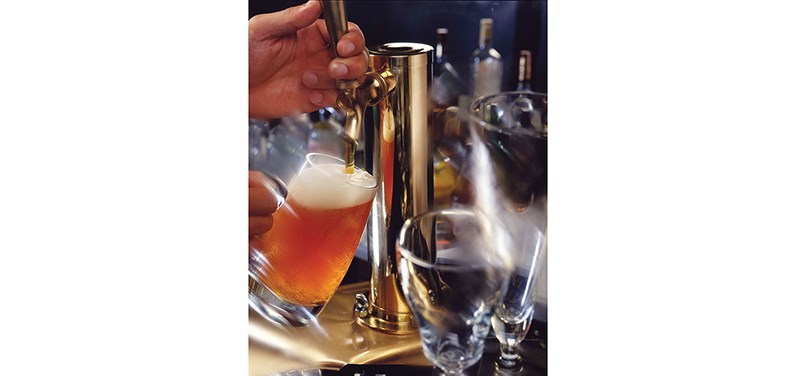Microbreweries and distilleries are welcome in Coquitlam but they should be treated like any other bar or pub if they want to allow drinking on-site, say a handful of liquor licencees and industry stakeholders.
Speaking at a public hearing on proposed liquor regulation changes, which if approved will pave the way for liquor manufacturing in Coquitlam, Jeff Guignard, the executive director of the BC Alliance of Beverage Licensees, said longtime operators fear changes to city liquor rules will favour newcomers intent on hopping on the micro-brewery bandwagon.
"We just want everyone to be following the same policy framework," he told council. "I think you have to respect your existing businesses in the community."
One of the businesses Guignard is talking about is Woody's Pub on Brunette Avenue, whose operator, Gordon Cartwright, said he welcomes the new products that will come with the introduction of craft breweries into the community but there needs to be a level playing field.
"It is terrifying for us stakeholders that we have invested our life savings in a business based on existing regulations," he said. "We are extremely concerned about our business and what is going to happen in the future."
But some who spoke at Monday's hearing urged council to be cautious about over-regulating the industry.
Kirsten Rees, a Coquitlam resident who is hoping to open her own establishment, said the culture surrounding craft breweries is different from typical pubs. Tasting rooms provide an opportunity for patrons to sample the beer the way the brewer intended and are essential to the micro-brew experience.
"It is one of the big draws," she told council. "The more open you can leave that — hopefully by working one to one — the better off it will probably be."
Rees added that brew pubs are limited as to where they can locate. The operations require the ability to process waste water and need to be located in areas geared to patrons who prefer transit or cycling, she said.
Carolyn McCarthy, another Coquitlam resident, compared craft breweries to farmers' markets, providing patrons an opportunity to meet the producers of the products they consume.
"When you visit a local brewery, there is a sense of community," she said. "They are coming to try the latest beer and meet the people who make it."
LIQUOR STORES
Coquitlam is also considering allowing the store-within-a-store liquor sale model, which would see some booze sales occur in separated areas within supermarkets.
Several people who spoke on the issue during Monday's public hearing expressed concern about making alcohol more accessible and encouraged council to implement a 1-km separation between liquor stores.
Bert Hick, a liquor licence consultant, said studies have shown that when alcohol is more available, more people will consume.
"The more you make alcohol available, the higher your social costs are going to be," he said. "The police will have to deal with it. The social workers will have to deal with it. The families will have to deal with it."
Kimberlee MacGregor, the vice-president of retail stores and warehouses with the BC Government Employees Union, which represents government liquor store workers, said the public already has enough access to alcohol. She echoed several speakers' calls for a 1-km separation distance between stories.
"It worries me," she told council. "I think it is time we start fighting for our kids and our communities and not the almighty dollar. Our children are our future and we won't have them if we are all drowning in alcohol."
However, public opinion stands in sharp contrast to the opinions of MacGregor and Hick. According to a public survey conducted by the city last year, 77 of the 94 respondents said separation distances between liquor stores should be eliminated.
According to data form the Liquor Control and Licensing Branch, there are currently 167 active liquor licences in the city of Coquitlam. Of that number, 116 are food primary, 24 are liquor primary, 12 are for licensed retail stores and one is for a wine shop. Eight others are listed as independent agents.
The data also shows that there are six u-brew/u-vin licences, mainly for on-premise wine and beer making.
The total capacity for all liquor primary establishments is 13,295, which includes large operators such as the Hard Rock Casino, which seats 2,953, and the Poirier Sport and Leisure Complex, which seats 2,483 people. Other larger operators include the Hard Rock Casino Theatre (1,952) and the Douglas College David Lam Campus with 1,104.
The 116 food primary establishments have a total capacity of 15,444, with the largest being the Executive Plaza Hotel, which seats 1,070.
@gmckennaTC



